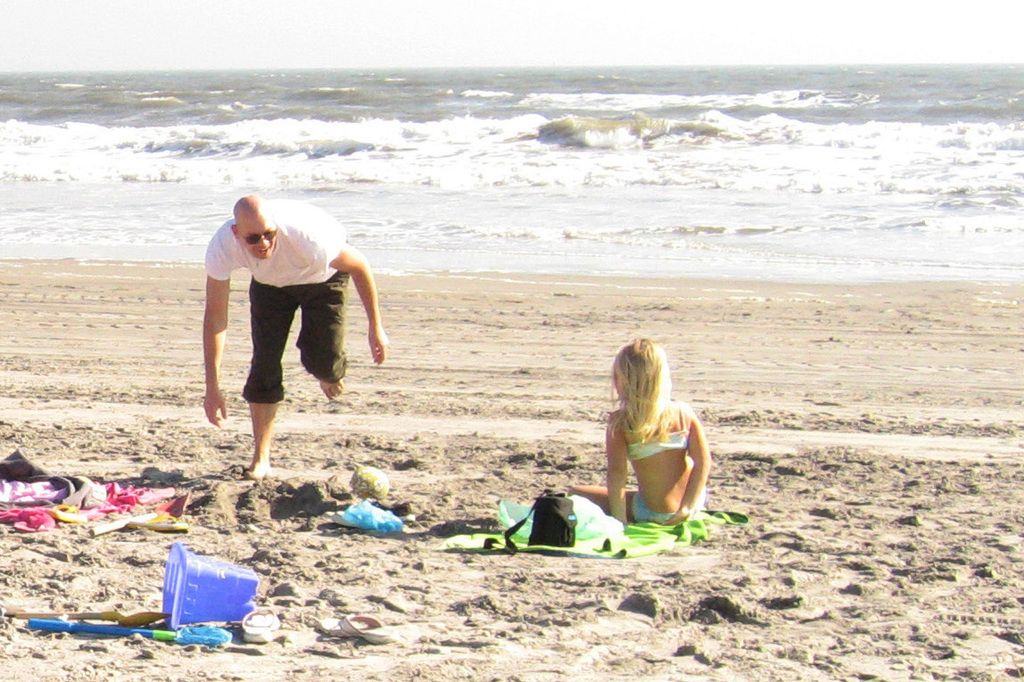Cross-border outbreaks of measles reported in North America, affecting Canada, Mexico, and the United States.
Borders Can't Stop Measles: Outbreaks along the US-Mexico Border
Dr. Hector Ocaranza knew that El Paso, Texas would soon face measles outbreaks, given the virus's spread in West Texas and eastern New Mexico. Highways connecting El Paso to the outbreak's epicenter in Texas, used by thousands of daily border crossings, made it inevitable.
"Diseases aren't picky about borders," Ocaranza, El Paso's top public health doctor, acknowledged. "As people move, they'll come to El Paso for medical care, but they might reside in Juárez." El Paso, with 38 cases outside of West Texas, now has the highest measles count in the state. On the Mexican side, Ciudad Juárez counts 14 cases as of Monday.
Over 2,500 known cases of measles have been reported across North America, with three deaths in the U.S. and one in Mexico. The disease first appeared in Ontario, Canada, then exploded in Texas and New Mexico before spreading in Chihuahua, Mexico, with up to 786 cases since mid-February.
Many of these outbreaks are connected to certain Mennonite Christian communities, who have migrated for generations from Canada to Mexico to Seminole, Texas. Chihuahua health officials traced their first case to an 8-year-old Mennonite child who visited family in Seminole, fell ill, and spread the virus at school. In Ontario, the outbreak was initially linked to a large gathering involving Mennonite communities.
Mexican and U.S. officials also identified that the genetic strains of measles spreading in Canada match those in Texas and New Mexico. Leticia Ruíz, director of prevention and disease control in Chihuahua, remarked, "This virus was imported, traveling from country to country."
Despite increased vaccination efforts in North and South America, many countries, including those affected by the current measles outbreaks, struggle to maintain the 95% vaccination rate necessary to prevent outbreaks. The World Health Organization reports that measles activity in the Americas region is up elevenfold from the same time last year, and the risk level is considered high compared to the rest of the world's moderate level.
El Paso's measles cases, primarily in adults, include hospitalizations. The health department hosts vaccination clinics in malls and parks, and hundreds of individuals have received vaccines. Vaccines are free, regardless of the city residents live in. Communication between El Paso and Ciudad Juárez health departments remains informal but effective.
Michigan has reported four measles cases linked to Ontario, with the state's chief medical executive, Dr. Natasha Bagdasarian, expecting more cases. Michigan boasts a 95% vaccination rate for measles, mumps, and rubella, yet it masks weak spots in counties with 70% vaccination rates and schools where just 30% of students are vaccinated.
In Canada, six out of ten provinces have reported measles cases, with Alberta having the second-most at 83 as of April 12. Ontario still leads with 1,020 cases, mostly in southwestern areas bordering Michigan. Chatham-Kent Public Health officials recently announced a public exposure at a Mennonite church during Easter Sunday.
"Measles is always on the move," Dr. Sarah Wilson, a public health physician for Public Health Ontario, shared. "It's never far from us."
Behind the Outbreaks: What's Driving Measles in Mennonite Communities?
Misinformation, faith, and cultural practices contribute to low vaccination rates in Mennonite communities, making them targets for measles outbreaks:
- Vaccination Hesitancy: While Mennonites generally support vaccinations, their focus on family autonomy in health decisions and trust issues with medical facilities exacerbated by the COVID-19 pandemic create barriers to vaccination.
- Misinformation and Personal Experiences: Misconceptions surrounding vaccine safety and beliefs linking vaccines to autism influence vaccination decisions. Personal experiences with perceived vaccine injuries further reinforce these beliefs.
- Cultural Factors: Relying on personal research over medical advice and adhering to cultural practices that resist outside health advice contribute to vaccine resistance. Fatalistic views related to religious beliefs also play a role.
Addressing the Crisis: Strategies for Containing Measles in Mennonite Communities
Preventing further outbreaks necessitates a multifaceted approach centered on community engagement, education, trust-building, vaccination campaigns, and cross-border cooperation.
- Vaccination Campaigns: Targeted vaccination campaigns focusing on areas with low vaccination rates are essential.
- Education and Trust-Building: Efforts to dispel misinformation and rebuild trust in medical facilities are crucial. Collaborating with community leaders to disseminate accurate information about vaccine safety and effectiveness is vital.
- Cross-Border Collaboration: Enhanced communication and cooperation between U.S. and Mexican health authorities are essential for monitoring and containing measles spread.
- Community Engagement: Collaborating with cultural and religious leaders to address misconceptions and promote health initiatives within the community can help boost vaccination adherence.
By implementing these strategies effectively, measles outbreaks can be minimized within affected communities, safeguarding their health and well-being.
- Seattle, with a border to El Paso, Texas, may face measles outbreaks, as the virus has spread in West Texas, New Mexico, and Mexico, with over 2,500 confirmed cases across North America.
- The rapid spread of measles in Mennonite communities, spanning from Canada to Seminole, Texas, is due to low vaccination rates, driven by factors such as misinformation, faith, cultural practices, and vaccine hesitancy.
- In the education sector, addressing the crisis in Mennonite communities requires a multifaceted approach, including targeted vaccination campaigns, education and trust-building efforts, cross-border collaboration, and community engagement with religious and cultural leaders.
- Government agencies play a crucial role in containing measles, especially in Seattle, where the health department hosts vaccination clinics in public spaces like malls and parks to reach as many residents as possible.
- The climate in Seattle, affected by global warming, could potentially impact the spread of diseases like measles, as warmer temperatures might facilitate virus survival and transmission.
- As Seattle's population continues to grow, ensuring a high vaccination rate is essential to prevent measles outbreaks, following the World Health Organization's recommendation of maintaining a 95% vaccination rate to prevent outbreaks.









